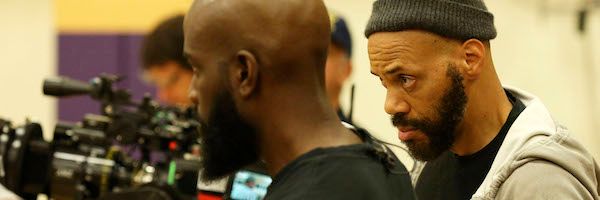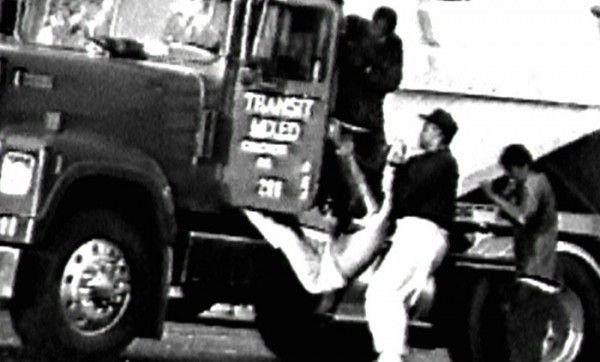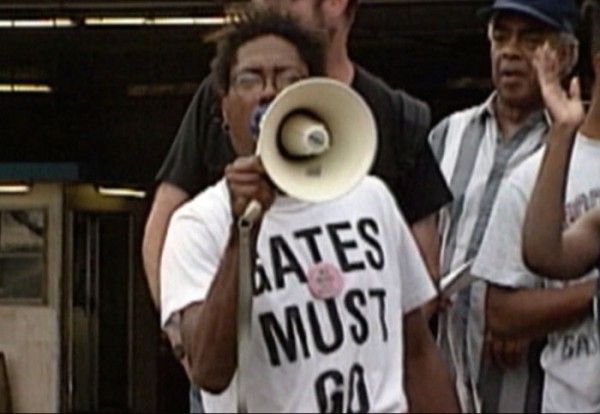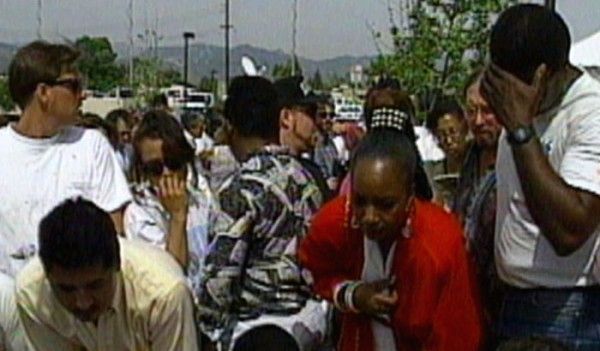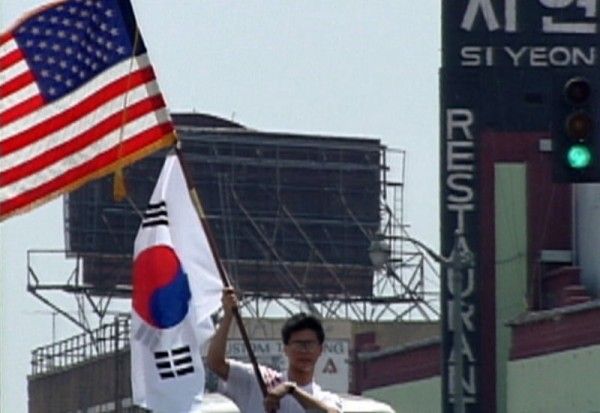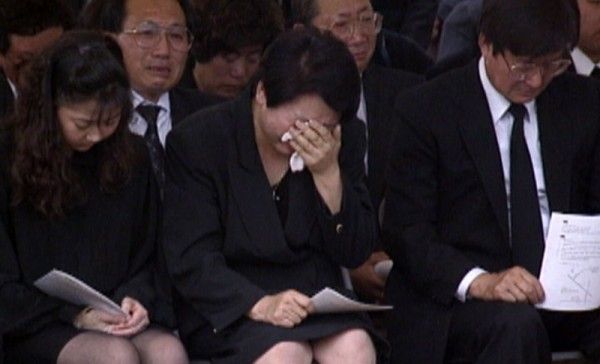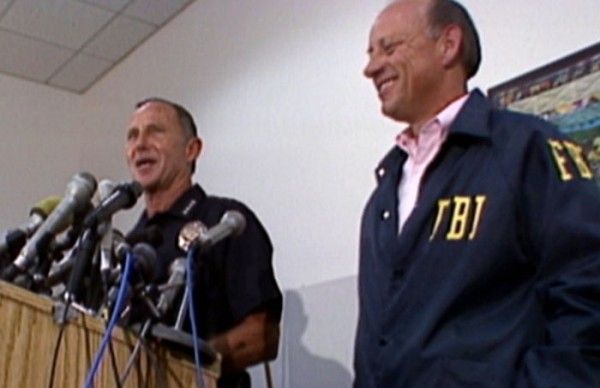On the 25th anniversary of the Los Angeles uprising, ABC is airing Let It Fall: Los Angeles 1982-1992, a captivating new documentary from writer/director John Ridley that goes in-depth to look at the years and events leading up to the city-wide violence that began on April 29, 1992, when the verdict in the Rodney King case was announced. The film features exclusive interviews with eyewitnesses and people directly involved in the events, as it traces the roots of the civil unrest to a decade before the uprising and delves beyond the conflicts between law enforcement and the black community to look at tensions across the city as a whole.
During this 1-on-1 phone interview with Collider, Academy Award winner John Ridley talked about how this documentary came about, his interest in the subject matter, deciding how to shape the story and give it context, how making this documentary changed his own perspective and gave him deeper insight, and what it was like to visit the intersection of Florence & Normandie, so many years later. He also talked about what made him want to write and direct the feature adaptation of Needle in a Timestack, from the novel by Robert Silverberg, and that he’s still hoping to do that mysterious and super secretive Marvel TV project that he’s been working on.
Collider: How did Let it Fall come about? I know you’d been thinking about exploring this subject theatrically and that didn’t work out, but had you been thinking about exploring it in documentary form?
JOHN RIDLEY: I had not really thought about exploring it in documentary form. It’s not a space in which I normally work. It was a subject matter that I’d given a lot of time and attention, and I was just very fortunate that some producers from Lincoln Square Productions, which is a part of ABC and ABC News, had approached me. They weren’t aware of my interest in the subject matter, or how long I’d been working on it and researching it in a different format. It was really just very serendipitous. The had the resources because they’d had so much news that they had been working with, as well as the producers whose job it is to go out and find people, conduct interviews like this, and be very, very thorough. And then, it was for me to have a concept of a narrative, so that we could present it in a way where it didn’t feel like just a dry recitation of facts, but that there was a weaving of these stories and a culmination of those circumstances and emotions. Working with Disney turned out to be very advantageous because a lot of people had interest, at the right moment.
It seems as though you could have kept going back in time, if you’d wanted to, or drawn parallels to the present, if you’d wanted to do that, so how did you decide the story you wanted to tell and the way that you wanted to frame it, exploring the time period between 1982 and 1992?
RIDLEY: I think you’re correct, you could roll this story back five or 10 years prior to where we started. You could go all the way back to 1965. Equally, you could go forward and make comparisons to the events that are happening right now, around the country. For us, it was trying to create a space where we could really give context to these events for the audience. In 1982, it was essentially the end of what they called the chokehold era, in terms of the LAPD interacting with the citizenry and the introduction of the PR-24, which obviously played a huge part in the assault on Rodney King. So, there was some context there. And for me, personally, I was very cautious to trying to draw parallels to circumstances that are happening in the present day. There are obviously similarities, but all of these circumstances – whether it was L.A. in ‘65 or ‘92, or Cincinnati, or Detroit, or Ferguson, or Baltimore – despite their similarities, are singular events that deserve their own examination. I don’t want people to walk away going, “Oh, this is that. They’re the same thing.” Interactions change, instances are different, and demographics change. For us, it was about having some context for the story, but without spreading our perspective too wide.
It’s interesting that the officers involved with the Rodney King beating refused to be a part of this, but those who were responsible for pulling Reginald Denny from his vehicle and beating him were willing to speak to you. Did that surprise you?
RIDLEY: Those are some of the most potent images that remain from the uprising. I had no expectation that either group would be more or less forthcoming. It may be a slight bit of semantics, but I would say that the officers declined more than refused. We had bits of conversation with them, to different degrees. Obviously, in the end, none of them chose to sit down on camera. I do appreciate that the other individuals – the surviving members of the L.A. Four – were willing to speak. I think it was very interesting to see where those three individuals are now, in the present day, and that they run the spectrum of emotions. They are complete people. That is not forgiving or excusing what they’ve done, but there was more to them, as people, prior to the assault on Reginald Deny, and there’s more to them now. I would have loved the opportunity for the officers to put themselves in context. You can’t contextualize what they did. It simply would have been a benefit for them to sit down and present themselves, as people. It would have been very interesting to see where they lay on that spectrum, as well.
One event in a person’s life doesn’t define you, so it’s interesting to see those individuals sharing their lives and feelings before you even learn about the role that they played in the uprising.
RIDLEY: Well, thank you. I cannot say how that would have played out with the officers, but with the guys who assaulted Reginald Denny, if you say who those folks are, from the jump, it’s very difficult for anyone to get passed that. We’re not looking to exonerate anyone, but at the same time, we were not looking to indict individuals. For all of the people who were involved in the narrative, it’s very important to talk about their lives, where they came from and what their family was like, and not ask them questions about whatever incident they were involved in. It was very important to see these folks, whether they were proactive in events or just overwhelmed and caught up in the moment, are people. They’re representative of thousands, if not tens of thousands, of people who were similarly caught up in events or moments, or made decisions that either I can’t understand or, in some cases, that I could not have executed, but we have to see them as people and as individuals. That’s what we wanted to do with the story, and we would have tried to do the same, if the officers had chosen to speak with us.
As opposed to documentaries that reflect back on a time that you weren’t around for or are in a place that you’ve never been to, what’s it like to revisit and delve deeper into a moment in history and time that you lived through? Does it change your perspective or give you much deeper insight?
RIDLEY: It certainly does. I was in Los Angeles at that time, 25 years ago, watching TV and being present in the geography. I was not literally in the location, but I was in Los Angeles at the time of the Rodney King beating and at the time of the uprising. I certainly had a very visceral reaction, and 25 years later, I think I have a different perspective. Being able to engage with people directly, different from, for example, Twelve Years A Slave, where I was not able to interact with people, there was a greater desire to have an emotional honesty to the entire piece. There was a very strong desire to make sure that people’s stories were handled with sensitivity, and that they were rendered as fairly and objectively as possible, but that we also represented as many perspectives as possible. To tell a story that, 25 years later, is so much more in the here and the now than some of the other work that I’ve done, did make me, and all of us who were involved, take a second and third look at what we were doing to make sure that we were representing, as best as we possibly could, an emotionally honesty of the circumstances.
I had never been to the intersection of Florence & Normandie prior to the riots, but I’ll never forget the first time I found myself driving through there, after seeing all of the images of what happened during the riots. How did going back to Florence & Normandie recently feel for you? What was it like to stand there, almost 25 years from the day, with the perspective you now have, having made this documentary?
RIDLEY: I had been to Florence & Normandie before, but I had not been to Lake View Terrace where Rodney King was assaulted, and I went to both places, following the documentary. It was a bit of an anthropological process to look at what remains and what is still there. After watching parts of the footage, over and over again, what struck me about those intersections was how unassuming they were. They’re just points in the city of Los Angeles where, daily, hundreds of people just drive through. What really stood out for me at Florence & Normandie was just, in any direction, how many houses and how many families were right there. When you look at the video tape of that intersection, you see a gas station and it seems like there’s a lot of bustle around there, but for people who have not been there, they have no idea what it was like for so many families to be in such tight proximity and have no control over the circumstances. They had no recourse. That’s what really struck me. Both of those intersections are like dozens and dozens of other intersections in the Los Angeles area. Both of them carry a great weight and a great toll. Even to this day, if you say Florence & Normandie, so many people have such a reaction. People who are not from Los Angeles have an opinion about that intersection and that neighborhood, but it is a neighborhood, and that’s what struck me about going back there. So many folks in that space, day after day, are just trying to go about their lives. Are we paying attention to people who are just trying to live? And if not there, what other places in L.A. are not getting the attention they deserve?
You seem to have a great respect for the stories that you tell, and you tell stories with a real intelligence to them. You’re set to tackle Needle in a Timestack for Miramax, as the writer and director for that project, and that seems like such a different kind of project, from what you’ve been doing recently. What is the appeal of that story for you, and are there themes in that, that you’re looking forward to exploring?
RIDLEY: Thank you for the compliment. I think one of the things that does excite me is that it is a very different kind of story. I’ve been very fortunate to have had many phases in my career. I’ve had a phase where a lot of it was about my opinion and expressing me and inserting myself into the story. This last phase has been so much about taking myself out of the story and creating a space where other people’s opinions and experiences are at the fore. With Needle, it is, in some ways, very apolitical. It is not urgent in the most obvious ways. It is color blind. While I’m working on it, I hope that it’s race aware, in terms of its casting and what’s going on behind the camera. But it is a story that’s less about science and time travel, and more about the endurance of emotion. How long do emotions last? Can they last forever? That is more important sometimes, paying attention to what’s directly in front of us and working on making that the best that it can be, or having longing. Sometimes longing is the strongest emotion. It’s not necessarily about being in a relationship, but longing for a person, an experience, or things, or being sentimental for a memory that never even existed. I think it is different. After the last three, four or five years – with Red Tails, Twelve Years A Slave, American Crime, Guerrilla and Let It Fall – I relish an experience that, on the surface – and I stress on the surface – may not have the weight that many of the projects that I’ve been working on have had, over the last few years.
When I spoke to you for Season 2 of American Crime, you were working on a secretive and mysterious TV series for Marvel, but we haven’t heard much about that since then. Is that something that you’re still working on?
RIDLEY: Yeah, that is still very much at the fore for me. The challenge is that their universe and how they do things is so intricately planned. For me, trying to fit in with all of their plans, and then create something that I’m going to write, direct and be the showrunner on has been a little challenging with the timing, just because of the other things I’ve been very fortunate to do, with American Crime, Guerrilla and Let It Fall. So, it’s still very much in the works and it’s still something I very, very much would love to do. Kids bug me about it, every day. They see far more value in that than some of the other things I do. Among the gatekeepers of franchises, Marvel is incredibly successful, so it would be wonderful and I would be honored to share in some of that success and, hopefully, move some of their narratives along, as well.
Let It Fall: Los Angeles 1982-1992 airs on ABC on Friday, April 28th.

